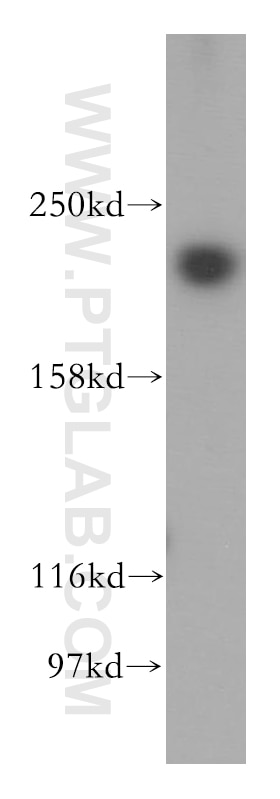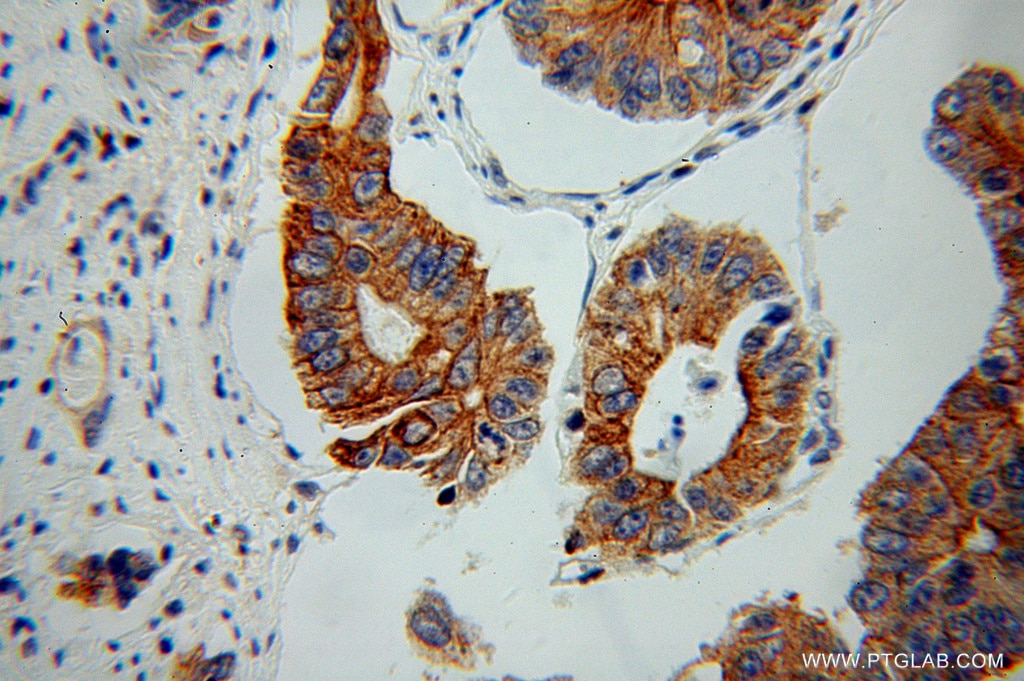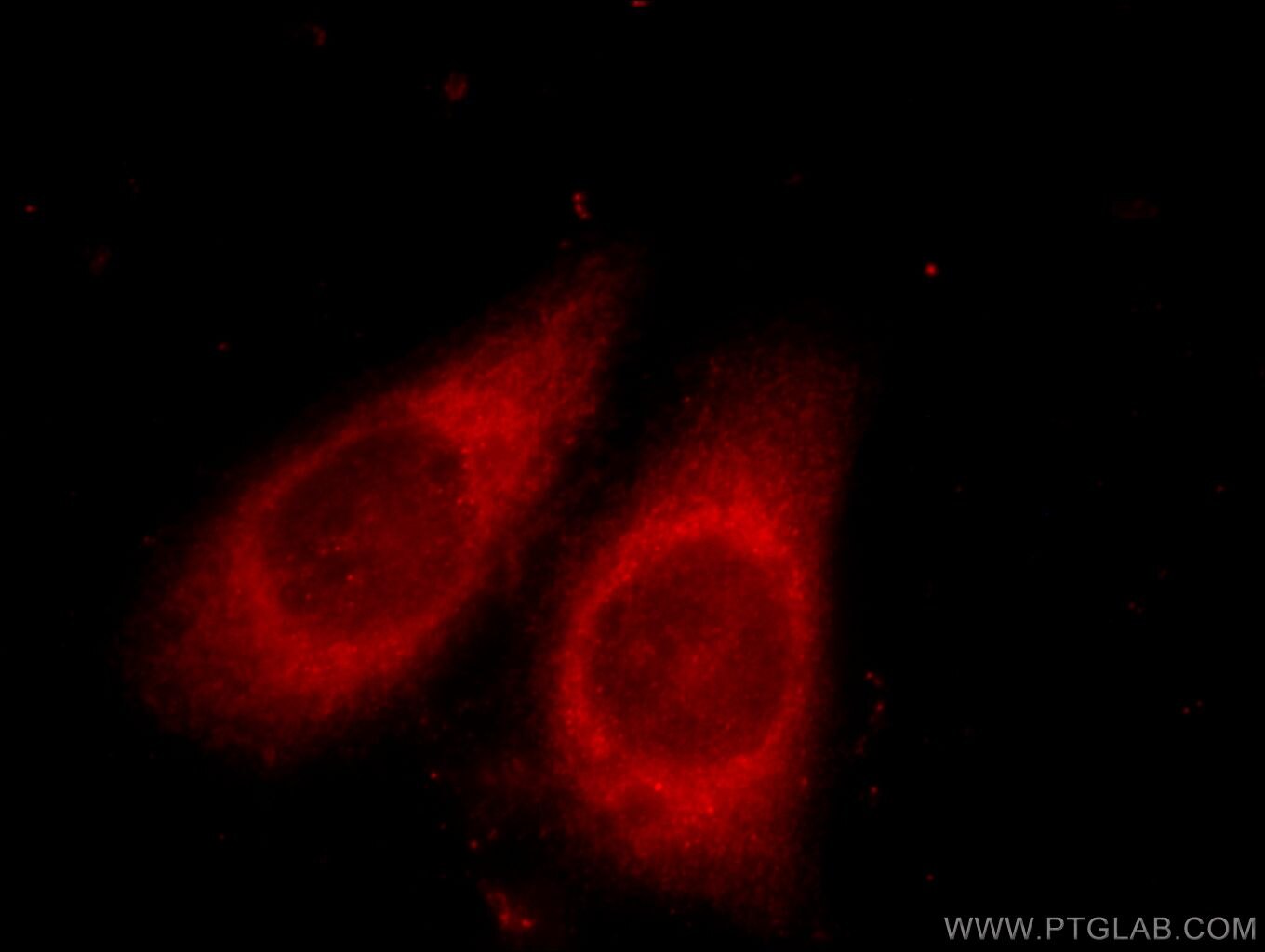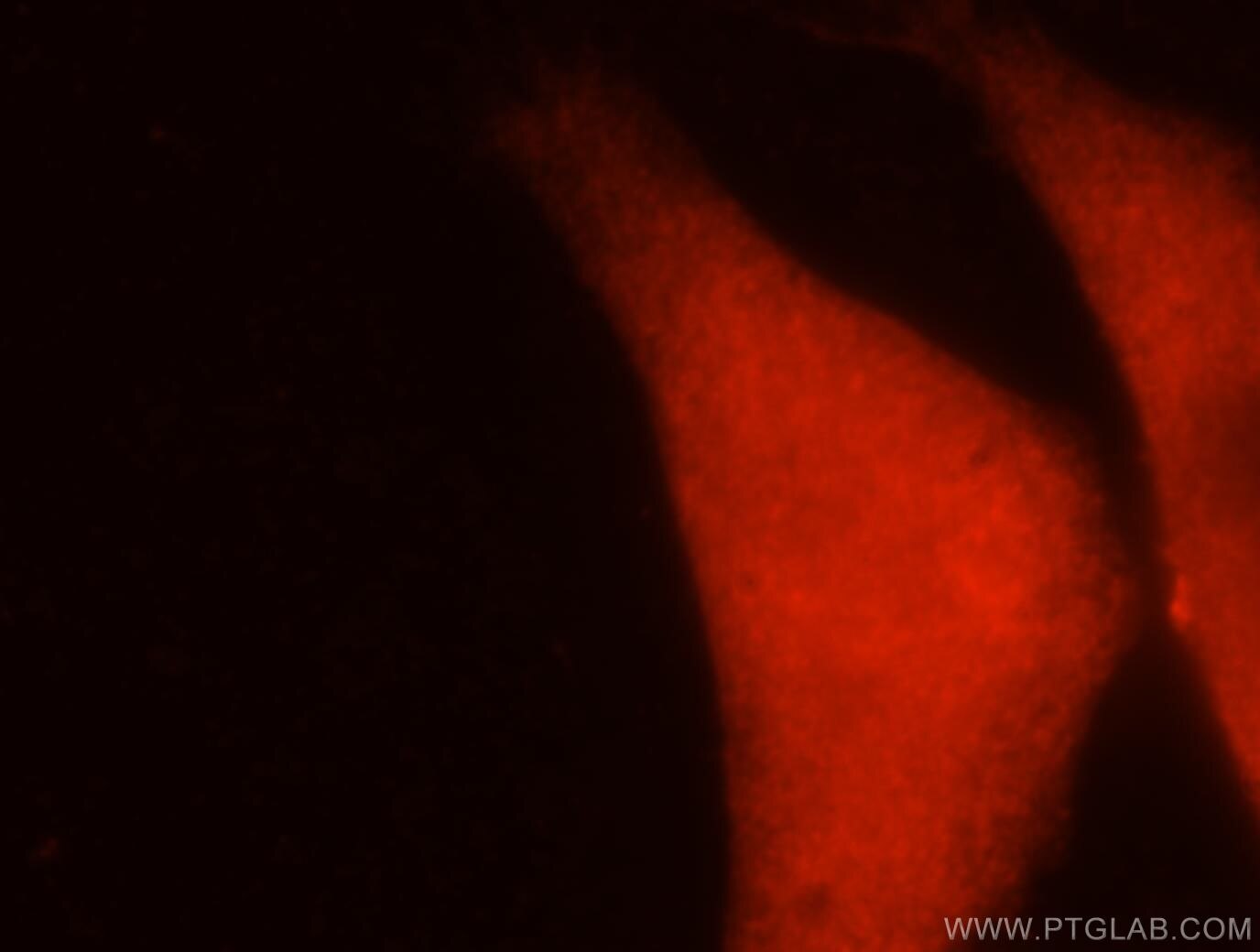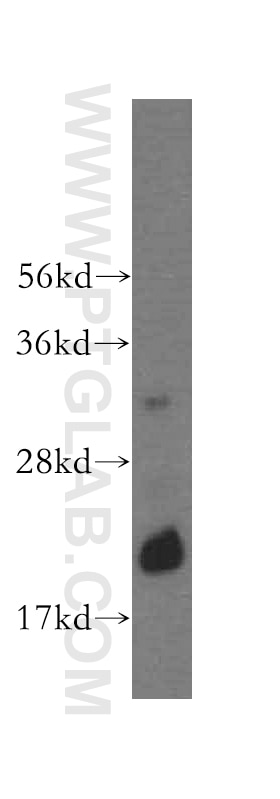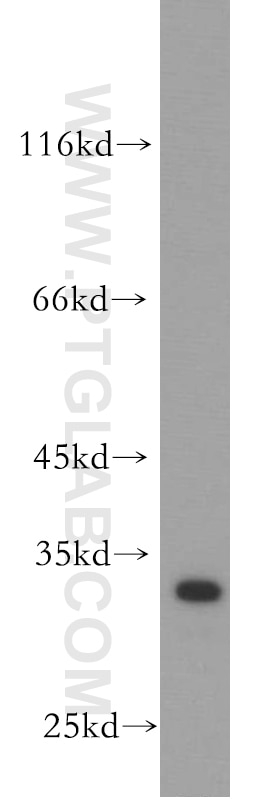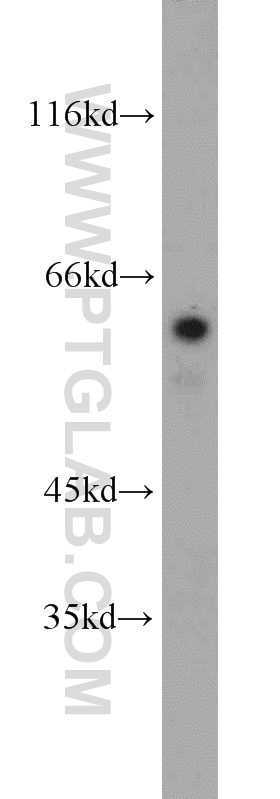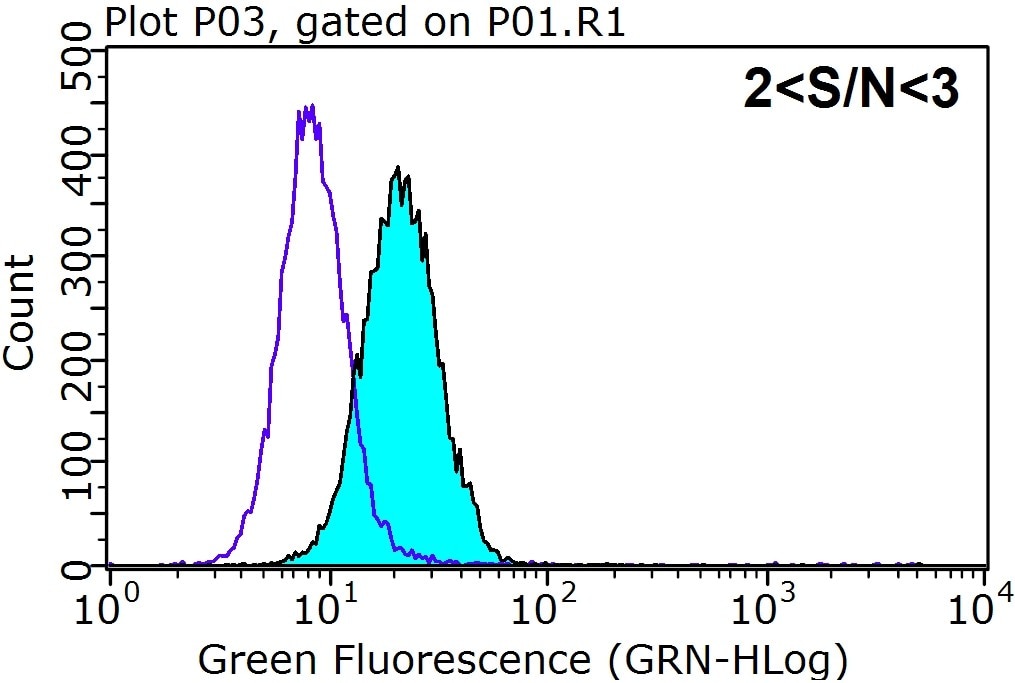- Featured Product
- KD/KO Validated
GPSM2 Polyclonal antibody
GPSM2 Polyclonal Antibody for ELISA
Host / Isotype
Rabbit / IgG
Reactivity
human and More (1)
Applications
WB, IHC, IF,ELISA
Conjugate
Unconjugated
Cat no : 11608-2-AP
Synonyms
Validation Data Gallery
Recommended dilution
| Application | Dilution |
|---|---|
| It is recommended that this reagent should be titrated in each testing system to obtain optimal results. | |
| Sample-dependent, Check data in validation data gallery. | |
Published Applications
| KD/KO | See 1 publications below |
| WB | See 3 publications below |
| IHC | See 1 publications below |
| IF | See 3 publications below |
Product Information
11608-2-AP targets GPSM2 in WB, IHC, IF,ELISA applications and shows reactivity with human samples.
| Tested Reactivity | human |
| Cited Reactivity | human, mouse |
| Host / Isotype | Rabbit / IgG |
| Class | Polyclonal |
| Type | Antibody |
| Immunogen | GPSM2 fusion protein Ag2167 |
| Full Name | G-protein signaling modulator 2 (AGS3-like, C. elegans) |
| Calculated Molecular Weight | 75 kDa |
| GenBank Accession Number | BC027732 |
| Gene Symbol | GPSM2 |
| Gene ID (NCBI) | 29899 |
| Conjugate | Unconjugated |
| Form | Liquid |
| Purification Method | Antigen affinity purification |
| Storage Buffer | PBS with 0.02% sodium azide and 50% glycerol pH 7.3. |
| Storage Conditions | Store at -20°C. Stable for one year after shipment. Aliquoting is unnecessary for -20oC storage. 20ul sizes contain 0.1% BSA. |
Background Information
GPSM2 belongs to a family of proteins that modulate activation of G proteins. GPSM2 assists in the exchange of guanine nucleotides, and allows extracellular signals to be transmitted to cells via cell surface, and ultimately plays a key role in the activation of G-proteins. Therefore, GPSM2 is a critical factor for the stability of cell division. Some recent studies have shown that GPSM2 messenger RNA (mRNA) is overexpressed and plays a positive role in the development of certain tumors, such as liver cancer, pancreatic cancer, breast cancer. It also plays a role in neuroblast division and in the development of normal hearing. Mutations in GPSM2 are associated with autosomal recessive nonsyndromic deafness (DFNB82), which is a form of non-syndromic deafness characterized by prelingual, bilateral, severe, sensorineural hearing loss.
Publications
| Species | Application | Title |
|---|---|---|
Am J Hum Genet Whole exome sequencing and homozygosity mapping identify mutation in the cell polarity protein GPSM2 as the cause of nonsyndromic hearing loss DFNB82. | ||
Sci Rep Deletion of Brg1 causes abnormal hair cell planer polarity, hair cell anchorage, and scar formation in mouse cochlea. | ||
Mol Biol Cell NuMA localization, stability, and function in spindle orientation involve 4.1 and Cdk1 interactions. | ||
Genes Chromosomes Cancer Critical roles of LGN/GPSM2 phosphorylation by PBK/TOPK in cell division of breast cancer cells.
| ||

